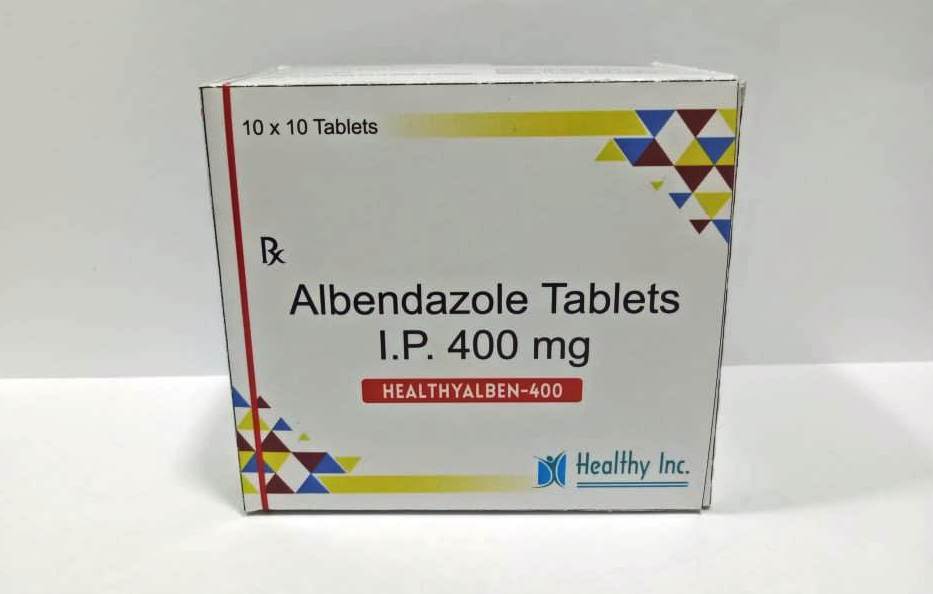Albendazole Tablets Use

Adrenochrome Monosemicarbazone Compound Tablets Use
20/11/2023
Alendronate Tablets Use
20/11/2023Albendazole Tablets , एल्बेंडाजोल गोलियाँ, comprimidos de albendazol, comprimés d'albendazole, أقراص ألبيندازول ملجم ملجم, 片阿苯達唑片 毫克 毫克, Exporters, Wholesalers India, Distributors India, Generic Supplier, who gmp certified manufacturer,एल्बेंडाजोल गोलियाँ , comprimidos de albendazol, comprimés d'albendazole, أقراص ألبيندازول ملجم ملجم, 片阿苯達唑片 毫克 毫克, comprimidos de albendazol
Albendazole tablet manufacturer
Albendazole is a medication commonly used to treat parasitic infections in humans. It belongs to a class of drugs known as anthelmintics, which are used to combat various types of parasitic worms that can infect the body.
Here are some key points about Albendazole tablets:
Indications: Albendazole is used to treat a variety of parasitic infections, including:
Soil-transmitted helminths (intestinal worms) like roundworm, hookworm, and whipworm.
Tapeworm infections, such as neurocysticercosis (caused by the pork tapeworm) and hydatid disease (caused by the dog tapeworm).
In some cases, it may also be used for other parasitic infections, as directed by a healthcare provider.
How It Works: Albendazole works by interfering with the ability of the parasite to absorb glucose, which is essential for its survival. This disruption eventually leads to the death of the parasite.
Administration: Albendazole is typically taken orally in tablet form. The exact dosing and duration of treatment will depend on the type of infection being treated and the patient’s age and weight. It is important to follow your healthcare provider’s instructions carefully.
Side Effects: Common side effects may include nausea, vomiting, abdominal pain, headache, and dizziness. Serious side effects are rare but can include allergic reactions and liver problems. If you experience severe or unusual side effects, you should contact your healthcare provider.
Precautions: Before taking Albendazole, inform your healthcare provider about any existing medical conditions and medications you are taking, especially if you are pregnant, planning to become pregnant, or breastfeeding. Albendazole should not be used during pregnancy unless the potential benefits outweigh the risks.
Drug Interactions: Albendazole can interact with certain medications, so it’s important to inform your healthcare provider about all the drugs you are taking to avoid potential interactions.
Follow-Up: In some cases, your healthcare provider may recommend follow-up testing to ensure that the infection has been successfully treated.
Storage: Store Albendazole tablets at room temperature, away from moisture and heat.
Remember that Albendazole should only be used under the guidance and prescription of a healthcare professional, as its use and dosage depend on the specific condition being treated. If you suspect you have a parasitic infection, consult with a healthcare provider for proper diagnosis and treatment.
Albendazole is a medication used to treat various parasitic infections in humans. It belongs to a class of drugs known as anthelmintics, which are used to combat parasitic worms. Albendazole works by interfering with the metabolism of the parasite, ultimately leading to its death.
Here are some common uses of Albendazole:
Intestinal Worm Infections: Albendazole is often prescribed to treat infections caused by intestinal parasites, including roundworms, tapeworms, and hookworms.
Hydatid Disease: This medication is also used to treat a condition called hydatid disease, which occurs when humans are infected with the larvae of a tapeworm called Echinococcus.
Neurocysticercosis: Albendazole can be used to treat neurocysticercosis, a parasitic infection that affects the central nervous system. It is caused by the larval stage of the pork tapeworm, Taeniasolium.
Giardiasis: While not the first-line treatment, Albendazole may be used in some cases to treat giardiasis, a parasitic infection of the small intestine caused by Giardia lamblia.
Albendazole is typically taken as an oral tablet, and the dosage and duration of treatment depend on the specific infection being treated. It’s essential to follow your healthcare provider’s instructions and complete the full course of treatment, even if your symptoms improve before you finish the medication.
It’s crucial to inform your healthcare provider about any other medications you are taking and any existing medical conditions before starting Albendazole, as it may interact with certain drugs and may not be suitable for everyone.
Albendazole is generally considered safe when used as directed, but like all medications, it can have side effects. Common side effects may include nausea, abdominal pain, headache, and dizziness. If you experience severe or unusual side effects, it’s important to contact your healthcare provider.
Please note that this information is based on my knowledge up to September 2021, and there may have been developments or changes in prescribing guidelines for Albendazole since that time. Always consult a healthcare professional or pharmacist for the most up-to-date and accurate information regarding the use of Albendazole or any medication.
Albendazole is a medication commonly used to treat a variety of parasitic infections in humans. It belongs to a class of drugs called anthelmintics, which are used to combat worm infections.
Here are some key points about Albendazole tablets:
Indications: Albendazole is used to treat infections caused by various types of worms, including pinworms, roundworms, tapeworms, and hookworms. It is also used to treat certain parasitic infections in the liver and other tissues.
Mechanism of Action: Albendazole works by interfering with the worm’s ability to absorb glucose, which is essential for their survival. This leads to the death of the parasites.


